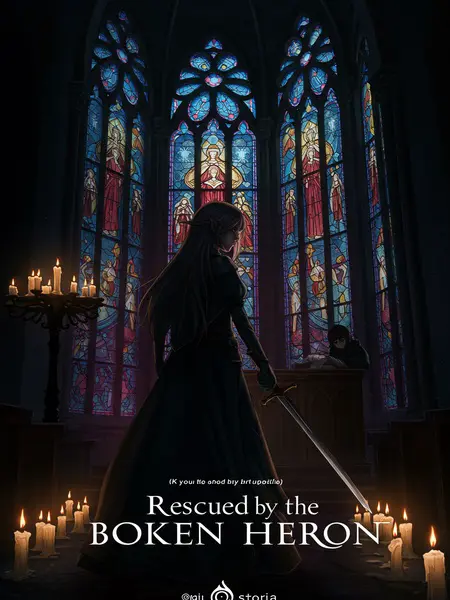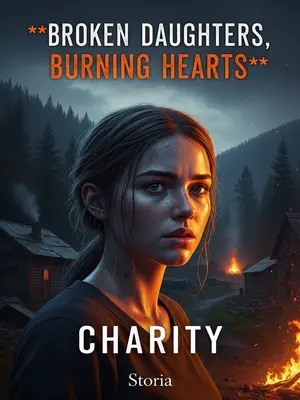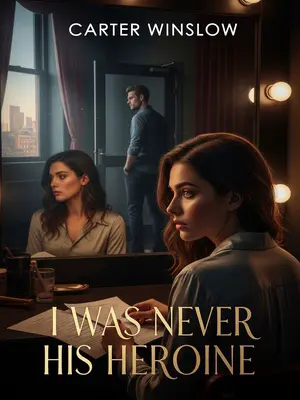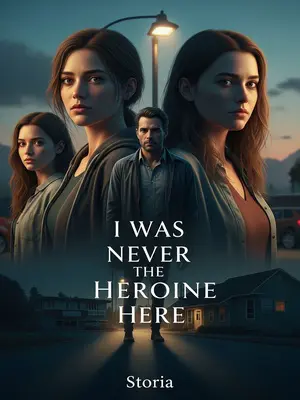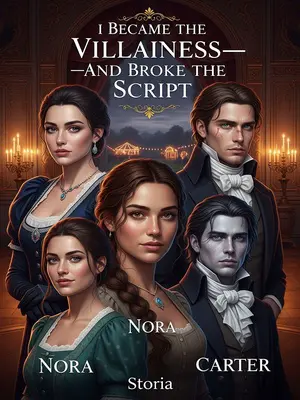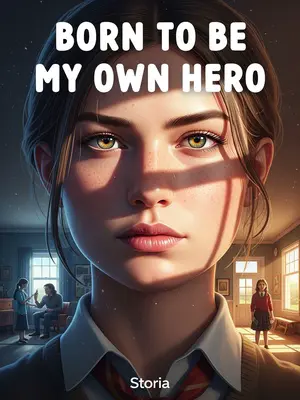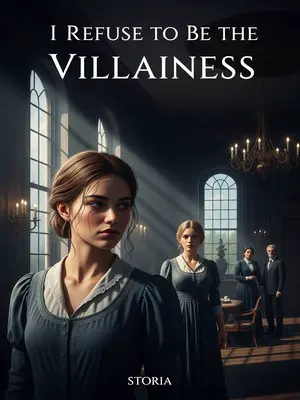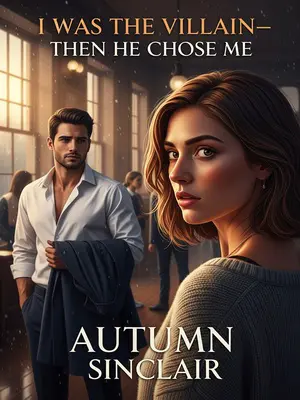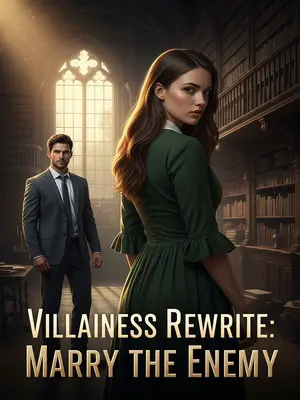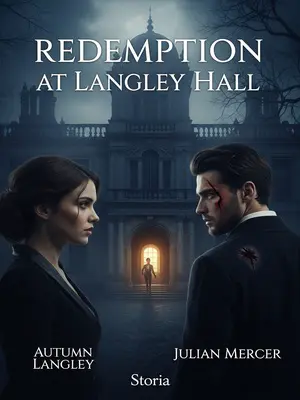Chapter 3: The Church of Forgotten Women
5
I never expected that, at this critical moment—
Hannah Lark, who hadn’t spoken to me in days, suddenly opened her mouth. I couldn’t tell if she was lucid or just mumbling unconsciously: "If you save me, you’ll die. Why?"
Her voice was dry and broken, with no trace of attachment to this world.
She sounded like she was already halfway gone, but there was something raw in her words—a sliver of hope, maybe, or maybe just disbelief.
Her heart had been shattered long ago, after witnessing her family’s destruction.
She probably never imagined that, after her skills were stripped and she was reduced to a worthless shell, someone would risk their life to save her.
So she asked—why?
The moon hung high in the sky. The border, my home, grew more distant with every mile.
The wind howled past my ears, carrying my steady voice to her: "You once saved thousands from the flames of war. Someone like you should not die."
Yes.
That’s it.
She should not die at the hands of the heartless, just to win a shred of pity.
She should live—truly live.
I glanced over, saw her staring at the window, tears streaking through the dirt on her cheeks. For the first time, I let myself believe there might be a way out—for both of us.
6
On the run from the border, we hid and evaded pursuit all the way.
We crossed state lines on back roads, lived out of cheap motels and roadside diners, always looking over our shoulders. The desert was endless, the sky a bowl of stars. I kept the radio low and my head down.
Heading east, the land was far from peaceful.
The governor doted on his first lady, building her lavish mansions, draining the state budget and leaving people destitute.
I heard the stories everywhere we stopped—how folks lost their homes, how the food banks were running dry. The country felt brittle, like it might shatter at any moment.
Finally, three months later, we arrived at a small church where we could take shelter.
It was the kind of place you might drive by a hundred times and never notice—white paint peeling, a wooden cross out front, wind chimes clattering on the porch. But the nuns took us in without asking too many questions.
Hannah Lark’s injuries were severe. Fortunately, she had a solid foundation. Over these three months, I spent almost everything I had to treat her. She had mostly recovered, but after the long, bumpy journey, she fell into a high fever as soon as we settled in the church.
"I’ll go ask the nuns for some Tylenol. Try to get some rest."
I squeezed her shoulder, hoping she’d feel comfort in the gesture. The church halls were cool and quiet, the walls thick with the smell of wax and old books. A faded quilt hung over the altar, stitched with names of families I’d known my whole life.
...
After this time together, from her initial despair and mental collapse, my constant encouragement had helped her regain some composure, though she still closed herself off and refused to speak to others.
She’d learned to sit by the window in the afternoon sun, staring out at the fields. Sometimes I’d see her lips moving, whispering words to people no one else could see.
But I didn’t force her to cheer up right away.
Not to mention her—even for an ordinary person, after suffering so much, simply not giving up was already a sign of a strong heart.
I made sure she had books and warm soup, small comforts to anchor her to the present. Sometimes I left music playing, hoping it would break through the silence.
Seeing her like this, I turned to leave. But before I’d taken a few steps, my wrist was grabbed.
Her grip was weak but insistent. I looked back and saw something sharp in her gaze—like she was fighting her way out of a bad dream.
I turned back to see she had opened her eyes. She didn’t look at me, only said, "Come back soon."
I smiled. "Don’t worry."
I tucked the blanket tighter around her shoulders before I left, listening for the soft hitch of her breath. That was the closest she’d come to asking for help.
The nuns lived in the east wing.
The church was a maze of narrow hallways and creaky doors. It always smelled like lemon polish and incense. I kept my steps light, not wanting to draw attention.
I asked a janitor for directions, found out where the head nun lived, and went over.
Before I could knock, I heard a ceramic bowl shatter next door, followed by a sharp, harsh voice: "Get out! All of you, get out!"
"All of you"?
Hearing that, my stomach clenched, my heart pounding wildly.
There was actually someone important here?
If so, weren’t we walking right into a trap?
The nuns’ voices carried through the old walls, and I caught a glimpse of nervous faces peering out from behind doors. Whoever was inside must have been someone with power—someone everyone else was afraid to cross.
7
I couldn’t help but feel afraid. I had no power at all—if discovered, I could almost picture my tragic end.
In a place like this, the wrong eyes could mean everything falling apart. I wiped my palms on my jeans, listening for footsteps behind me. My mouth was dry, heart thudding like I’d swallowed a jackrabbit.
Just as I was about to turn and leave, the nun inside was driven out.
Her habit was a little crooked, cheeks flushed with anger. She slammed the door behind her, muttering to herself.
To my surprise, besides fear, there was no respect for the big shot on her face. On the contrary, as soon as she turned away, her face twisted with disdain and disgust. She spat, "Still acting high and mighty, I swear."
She turned and, startled, bumped into me. She quickly masked her expression. "Can I help you, miss?"
I steadied myself, pretending to glance inside casually, and probed, "I came to ask Sister Jean for some Tylenol, but it seems I came at a bad time... The lady inside is pretty upset. What happened?"
She looked me up and down, measuring me. Her accent was pure Midwest—flat and careful. Seeing I was just here for medicine, Jean relaxed, but clearly didn’t want to say more. "Come with me."
Since she wouldn’t say, I didn’t press, only silently guessing the person’s identity.
After pondering for a while and getting nowhere, I gave up.
I followed her to the kitchen, got the medicine, filled a cup of water, and returned to my room.
The kitchen smelled like burnt toast and floor cleaner. I pocketed a packet of saltines for later and made my way down the hall, careful not to spill the water.
In the dim, narrow guest room—
Hannah Lark was already asleep, her eyes tightly closed, face flushed, clearly uncomfortable.
I woke her. She scanned me up and down, saw I was safe, withdrew her gaze, obediently took the medicine, and soon fell asleep again.
I sat quietly by her bed for a while, lashes lowered, thinking for a moment, and finally got up and left.
Her breath evened out, the fever slowly fading. I pressed the back of my hand to her forehead one more time before stepping outside, closing the door with a soft click.
I still had to find out—
Who was inside?
If it truly was someone from the governor’s family...
If she saw Hannah Lark, she would surely guess her identity. Then both Hannah and I would be doomed.
I had to prepare in advance.
My mind whirled with contingency plans: routes out of the church, places to hide, numbers to call if everything went sideways. I’d learned to live with that kind of fear—it kept me sharp.
8
The next evening—
After giving Hannah her medicine and putting her to sleep, I returned to the guest room I’d visited the day before.
The halls were quiet, shadows stretching along the walls. I rehearsed what I’d say if someone stopped me, hand tight around the tray.
On the way, I considered countless possibilities.
I thought about everything that could go wrong—the way the doors stuck, how fast I could get Hannah into a car if I had to. I pictured the woman inside: old, young, kind, cruel. It all blurred together.
In the end, I guessed the person inside was likely a senator’s wife here to pray for blessings. But I never expected it would be her.
I arrived just in time. Several nuns were lingering nearby, whispering:
"She used to run this state, now she can’t even run to the bathroom. Out here, folks forget you fast."
The words were soft but cutting. It was the way people here dismissed those who’d lost their power.
"Shh, keep your voice down. That lady’s got a temper. If she hears you, she’ll raise hell again. She’s really hard to deal with."
One of the nuns rolled her eyes, but looked over her shoulder just in case.
"Ha, am I supposed to be scared? You didn’t see how she just fell out of her wheelchair, crawling on the floor like a joke."
The laughter that followed was uneasy, tinged with guilt. None of them wanted to be the one to help her up.
"...But do we still have to bring her dinner?"
The conversation fell into an awkward silence.
No one spoke for a moment.
Suddenly, I broke the silence: "I’ll bring it."
My voice sounded steadier than I felt. The nuns turned, eyes curious and a little relieved.
The others turned to look. I ducked my head, shoulders hunched like a kid bracing for a scolding, and said calmly, "My sister and I are staying here—sorry to trouble you all. Let me do this small thing."
They exchanged glances. One of them made a face, and seeing the one holding the tray unmoving, grabbed the tray and shoved it into my hands, forcing a smile: "Since you insist, we won’t stop you. Go ahead."
I accepted readily, as if I hadn’t noticed their worried looks.
They didn’t know—
I had long wanted to meet this legendary Lady Protector.
All my life, I’d heard her name spoken with awe and resentment in equal measure. It felt strange to be this close, like stepping into the pages of a storybook.
9
After the nuns left, I tamped down my excitement and stepped forward, gently knocking on the door.
I wiped my palms on my jeans, forcing myself to breathe. The tray rattled a little, but I steadied it.
A cold voice came from inside: "Who is it?"
The door wasn’t locked. Guessing the lady’s legs were inconvenient, I boldly pushed the door open and entered: "Forgive me, ma’am. I’m just a temporary guest, and the sisters asked me to bring your dinner."
The room was shadowy, the blinds pulled halfway down. The air smelled faintly of lavender and antiseptic. The sight of her hit me like a punch—Zoe Grant, sitting in her battered wheelchair, spine straight as a ruler, eyes sharp and assessing.
Upon entering, I was momentarily stunned by the sight of the woman in the wheelchair.
Her hair was pinned up in a no-nonsense bun, streaks of gray at the temples. The medals on her faded jacket glinted in the candlelight. Her face was pale but unyielding.
Lady Protector Zoe Grant was once an overlooked daughter.
Her story was one I’d heard in fragments—always on the margins, never the star. But here, sitting across from her, I could feel the gravity of her presence, the years of pride and pain etched into her posture.
Her mother was beautiful, but offended the governor’s wife and was sent away, losing the family’s favor. She and her brother grew up in foster care, looked down on by everyone.
But hardship never broke Zoe Grant’s will. Instead, she was born tough, able to endure what others could not, scheming step by step until she finally helped her brother become governor, earning herself the title of Lady Protector.
By rights, as Lady Protector, she should have enjoyed glory and wealth. But, clever all her life, she was foolish for a moment—refusing to enjoy her good fortune, she insisted on pleading for a loyal public servant, kneeling until her knees were ruined, becoming a cripple, and losing her brother’s favor.
Whether in the capitol or among the townsfolk, all said she deserved her fate.
I’d overheard the whispers in the markets—how she’d thrown everything away for a lost cause. People out here can be cruel in their judgment, but they never forget a story.
Yes, whether in the story or in all my years here, that’s what I heard.
They all said Lady Protector was calculating, not a good person.
At first, everyone thought she had a hand in the Lark family’s downfall, but no one expected she would kneel and break her knees for loyal public servants, only to meet such a miserable end.
Someone who schemed for everything, in the end, died for sincerity.
A single candle burned in the room, its light dim.
Zoe Grant sat in her wheelchair, shrouded in shadow, her face indistinct.
I set the food on the table, speaking softly: "Ma’am, why not turn on another light?"
I carried the candle closer, intending to light the one before her, but in the next moment, my wrist was suddenly grabbed and yanked forward—a cold knife pressed to my neck.
The candle fell to the ground. A sinister voice came from above, mocking: "Sent by my brother, are you? Can’t wait to finish the job? He really is impatient."
My heart leapt. I dared not move.
The blade was sharp, pressing just enough to make me sweat. I forced myself to stare straight ahead, refusing to flinch. I could see the glint of suspicion in her eyes—years of betrayal had taught her never to trust first.
10
Now that I was closer, her pale, striking face came into view. She truly was beautiful, her features exquisite yet full of strength.
I noticed a scar tracing her jawline, a souvenir from battles past. Her lips were pressed in a hard line, but her hands trembled just slightly.
But now was not the time to think of such things.
I raised my hands, hurriedly saying, "Ma’am, you’ve got it wrong. I’m nobody, I don’t even have a weapon, and I’d never dare hurt you."
My voice cracked a little, but I kept my gaze steady. I remembered what my grandma used to say: never lie to a woman holding a knife—tell her the truth, or she’ll know anyway.
As my words fell, the room grew strangely silent.
I could hear the hum of the old fridge down the hall, the wind against the windowpanes. My breath came out in shallow puffs, fogging the cold metal.
Just as I thought she might let me go, she suddenly sneered, "Go get that roll and eat it."
I froze, then realized—
She must think I poisoned the roll.
So I reached out to pick up the roll...
I met her eyes as I did so, holding the bread steady so she could see my hands. My heart thundered in my ears. Whatever happened next, I knew I couldn’t turn back now. If she didn’t trust me tonight, we were both as good as dead.
